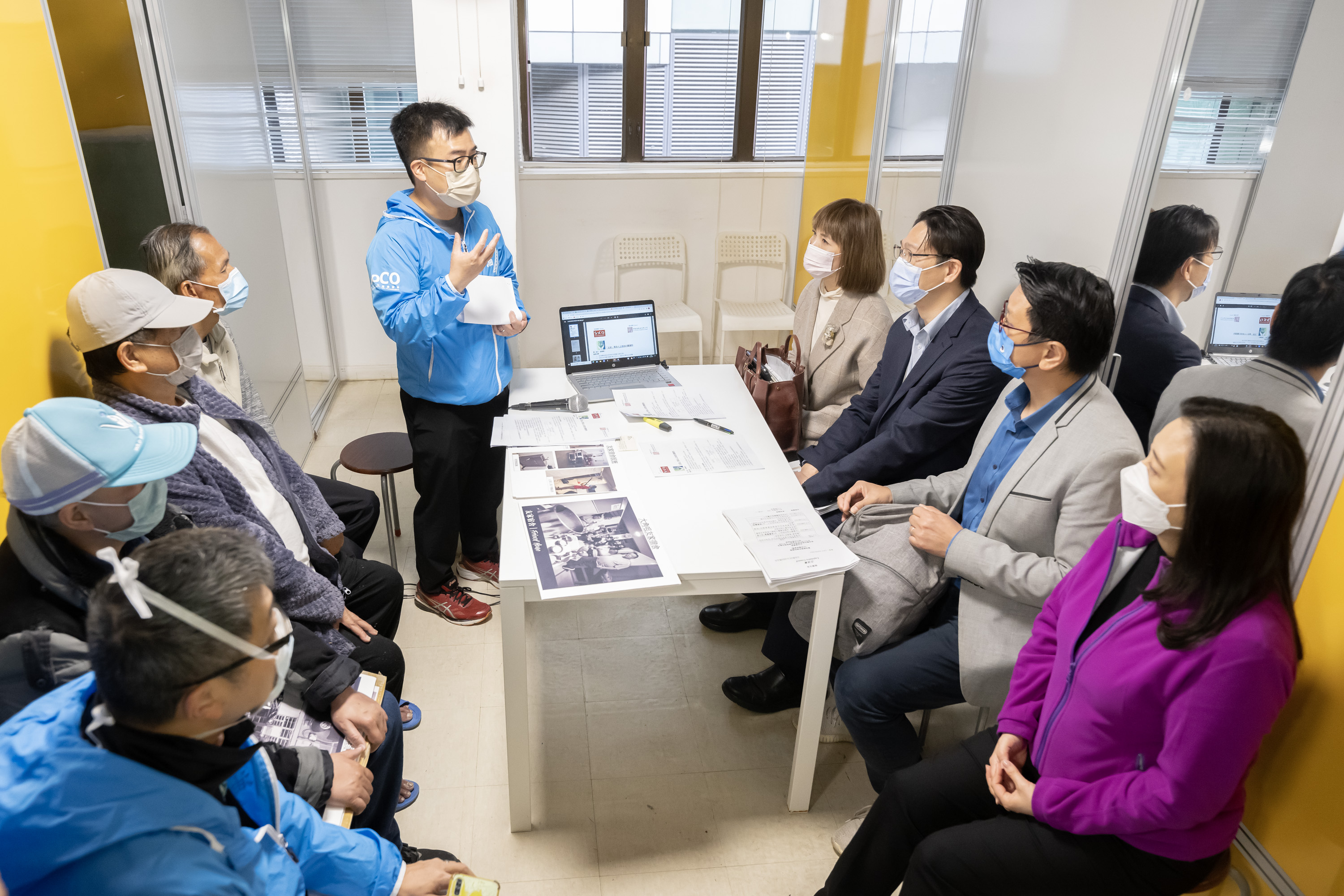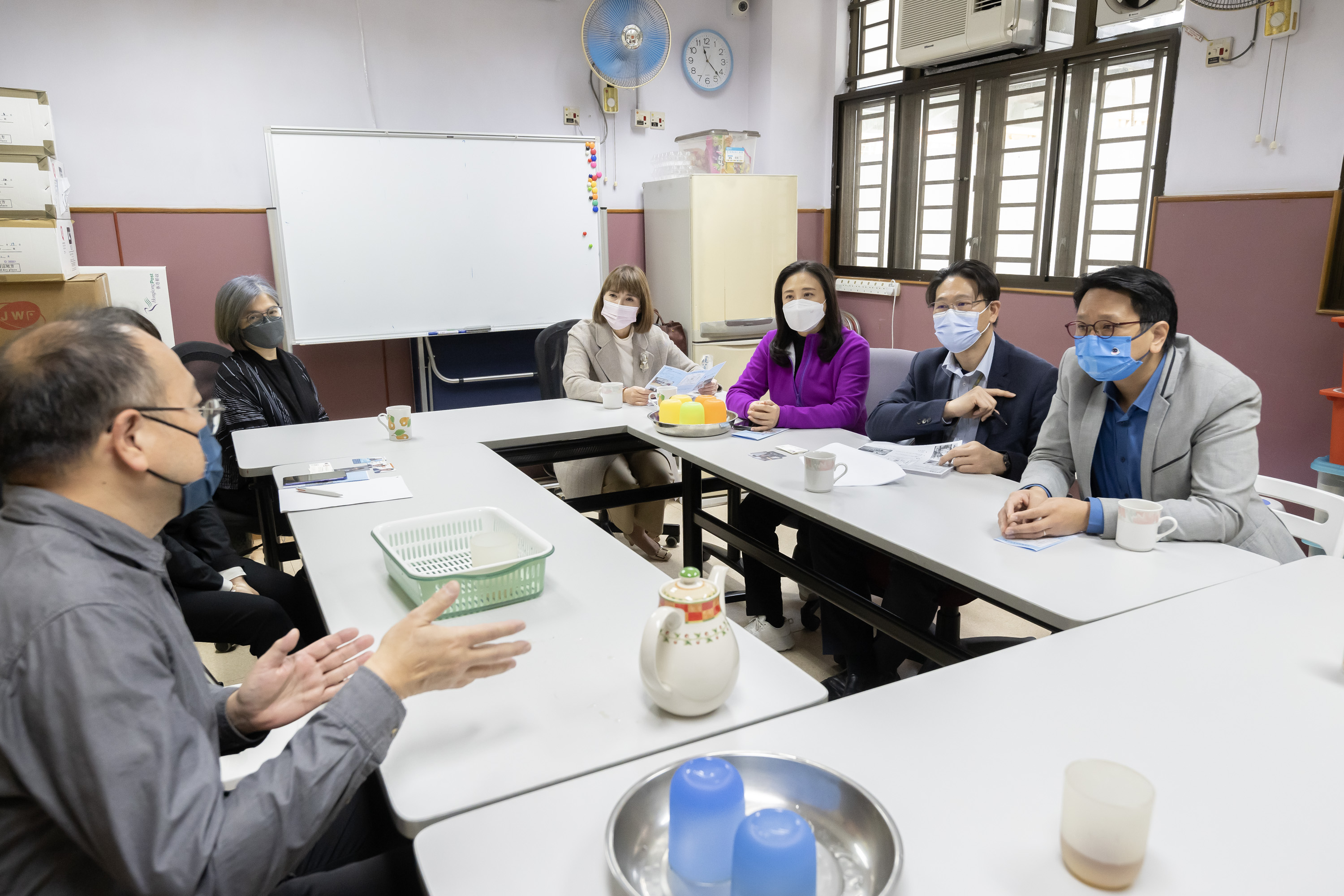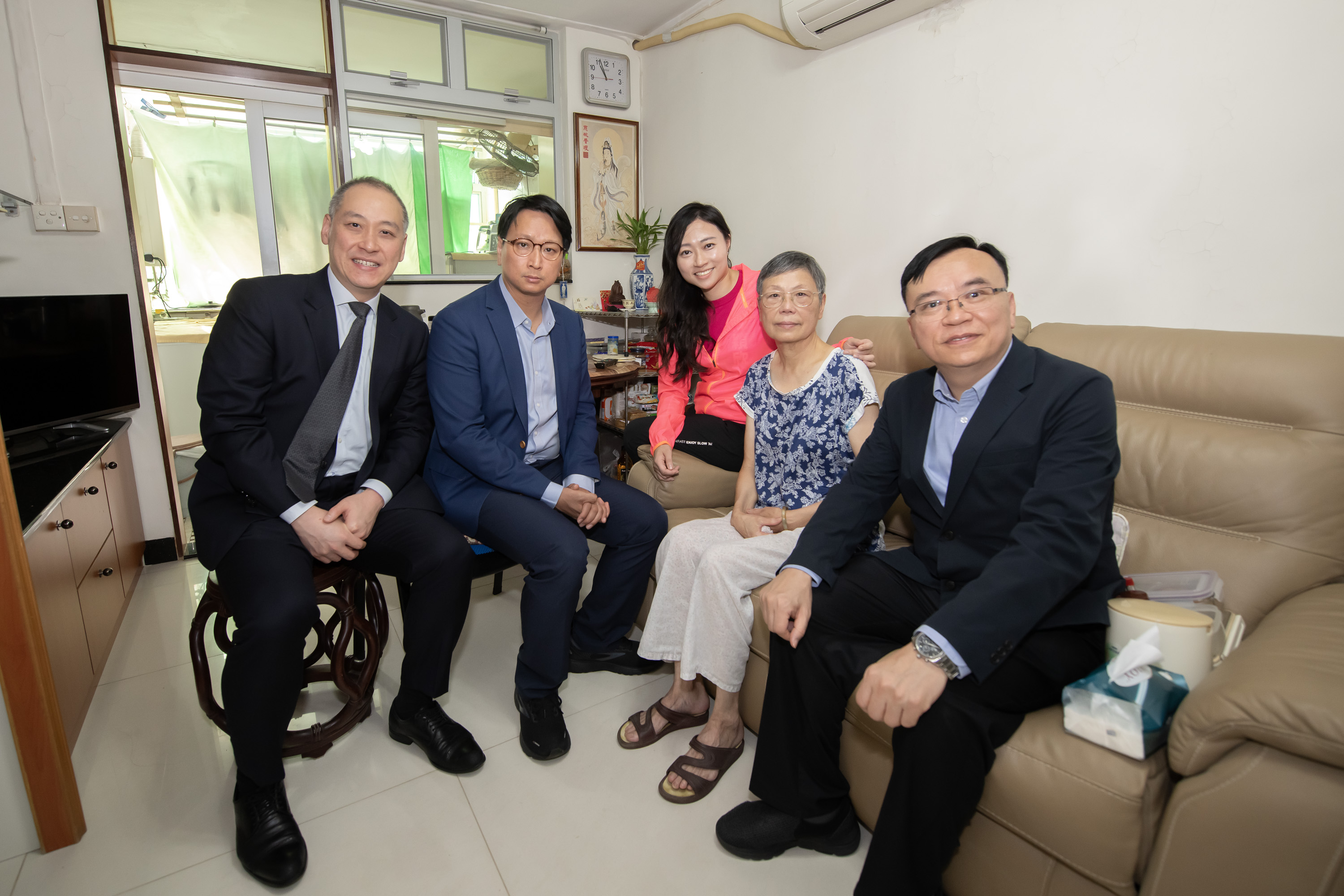The Legislative Council
Annual Report 2023
Introduction
The Legislative Council operates a Redress System to receive and handle complaints from individual members of the public and deputations who are aggrieved by government actions or policies. It also deals with public representations on government policies and legislation, as well as other matters of public concern.
Members take turns, in groups of nine, to be on duty each week to oversee the Redress System, and to receive and handle representations of and complaints made by deputations. During their duty week, Members also take turns to undertake “ward duty” during which they meet with individual members of the public and provide guidance to staff on the processing of cases.
Statistics
No. of new cases received
1 273
No. of cases processed and concluded during the session
1 216
No. of site visits conducted
2
No. of case conferences held with representatives of the Government and/or public organization
17
No. of telephone enquiries received
1 572
No. of views circulated to Duty Roster Members
10
Photos of site visits
Common cases handled
Some of the more common types of cases dealt with under the Redress System are highlighted below.
Policy bureau/government department
Transport Department
Total no. of cases
221
Types of cases
- Complaints about bus, minibus, taxi and residents’ shuttle services, the Rehabus Feeder Service, abuse of the Disabled Person’s Parking Permits, insufficient parking spaces for light goods vehicles and motorcycles, and the auction arrangement for traditional vehicle registration marks;
- Requests for assistance on enhancing bus and MTR train services as well as the facilities at bus stops, bus termini and public transport interchanges (“PTIs”), the publicity of the implementation of HKeToll, the special traffic and transport arrangements for the Community Chest New Territories Walk for Millions 2022, early implementation of the Bus Route Planning Programme 2022-2023 of Sha Tin District, tightening the eligibility criteria for application for Parking Certificates for Drivers Who Carry People with Mobility Disabilities, and extending the pedestrian green time to accommodate pedestrians with limited mobility; and
- Proposals for provision of direct bus services and fare concessions for a number of bus routes and a green minibus route, enhancing dissemination of information by franchised bus companies and the MTR Corporation Limited via their respective mobile applications, relocating bus bays at PTIs, and installing pedestrian traffic light countdown device to enhance pedestrian safety.
Follow-up
- The complaints, requests and proposals were taken up with the Administration in the form of written referral.
Policy bureau/government department
Transport and Logistics Bureau
Total no. of cases
93
Types of cases
- Complaints about the fare increase applications for public transport services, the aircraft noise arising from the Three-Runway System of Hong Kong International Airport, and the unsatisfactory handling of complaints against green minibus services by the Transport Department;
- Requests for assistance on enacting legislation/ introducing measures for enhanced regulation of the taxi industry, early announcement of the implementation arrangements of the Scheme on Northbound Travel for Hong Kong Vehicles, early construction of the proposed North Island Line, and increasing the subsidies granted under the transport fare-related subsidy schemes;
- Proposals for increasing the penalty for effective combat of illegal parking, implementing measures to promote the use of public transport, allowing pets to board public transport to provide greater convenience to pet owners, the alignment of the proposed East Kowloon Line, enacting legislation for enhancing the effective management of road use and hence the alleviation of traffic congestion, and legalization and regulation of online ride-hailing services; and
- Views on the Taxi-Driver-Offence Points Bill.
Follow-up
- The complaints, requests and proposals were taken up with the Administration in the form of written referral, while the views were referred to the Legislative Council Bills Committee on Road Traffic Legislation (Enhancing Personalized Point-to-point Transport Services) (Amendment) Bill 2023 and Taxi-Driver-Offence Points Bill for follow-up.
Policy bureau/government department
Food and Environmental Hygiene Department
Total no. of cases
61
Types of cases
- Complaints about staff of the Food and Environmental Hygiene Department (“FEHD”), the ineffective method adopted for conducting fact-finding exercises on fixed hawker pitches, the enforcement actions taken by FEHD, the environmental hygiene in various districts, and the occupation of the communal seating area in a cooked food centre;
- Requests for assistance on enhanced monitoring of outsourced staff of FEHD, itinerant hawkers, and licensed food factories supplying school lunch boxes, reinstating the fixed-pitch hawker licences, early resumption of the refurbishment works for a public toilet, the handling of complaints related to water dripping and hot air emitted from air conditioners and illegal extension of business area, and the control measures on food imported from Japan upon the commencement of the nuclear-contaminated water discharge; and
- Proposals for enhanced measures against illegal hawking, enhanced monitoring of packaged ice intended for human consumption, and relaxing hawker control.
Follow-up
- The complaints, requests and proposals were taken up with the Administration in the form of written referral or case conference; and
- Policy issues were referred to the Legislative Council Panel on Food Safety and Environmental Hygiene for follow-up.
Policy bureau/government department
Hong Kong Police Force
Total no. of cases
55
Types of cases
- Complaints about domestic noise and the sale of pornography;
- Requests for assistance on enforcement actions against illegal parking and unauthorized street performances; and
- Proposals for enhanced measures against begging, relaxing the restrictions on public meetings and processions, deploying additional police officers for patrolling, enhancing the 999 emergency call service and the driving safety awareness of police officers responsible for driving police vehicles, and improving the design of the uniform for officers of the Police Tactical Unit to enhance their public image.
Follow-up
- The complaints, requests and proposals were taken up with the Administration in the form of written referral.
Policy bureau/government department
Housing Department
Total no. of cases
52
Types of cases
- Complaints about staff of the Housing Department (“HD”) and a property services agent appointed by HD, the tactile guide paths installed at a public rental housing (“PRH”) estate, the procedures for flat selection under the Tenants Purchase Scheme, and the low occupancy rate of Housing for Senior Citizens units;
- Requests for assistance on early allocation of PRH units, the redevelopment of Choi Hung Estate, the repair works for PRH units, the obstruction of pedestrian access in a PRH estate, the security functions of closed-circuit television systems installed at PRH estates, and improving the public enquiry services of HD; and
- Proposals for relaxing the eligibility criteria for applying for PRH by residents born in Hong Kong, and rent reduction to help alleviate the financial hardship of PRH tenants.
Follow-up
- The complaints, requests and proposals were taken up with the Administration in the form of written referral or case conference.
Significant cases handled
Fact-finding exercises of the Food and Environmental Hygiene Department
A deputation sought Members’ assistance on the ineffective method adopted by the frontline staff of the Food and Environmental Hygiene Department (“FEHD”) for conducting fact-finding exercises on fixed hawker pitches. According to the deputation, since the frontline staff only relied on visual inspection, there were often doubts and hence disputes over the investigation results. Members held a case conference with the Administration. In response to the Members’ urge, FEHD undertook to improve the inspection method such that its frontline staff would use tablets during future fact-finding exercises for taking onsite photographs and recording investigation results to ensure accuracy and to avoid disputes. Moreover, upon review of the cases of two hawkers seeking assistance on the revocation of their licences, FEHD reinstated their licences and they were allowed to continue business.
Measures for handling public complaints and enquiries
A deputation sought Members’ assistance on the undue delay of the Home Affairs Department (“HAD”) in replying its complaint letter related to building management. In response to the Members’ urge for review and formulation of measures for timely handling of public complaints and enquiries, HAD implemented a number of improvement measures. While an officer of a higher rank would be assigned to strengthen the coordination of the handling of building management-related complaints and enquiries, case review meetings would be held on a regular basis to review the follow-up work of uncompleted cases and to report to seniors the progress of complicated cases which required longer processing time. Enhancement would also be made to the computer file of the Complaint Register whereby deadlines for issuing acknowledgements and replies would be calculated and the staff in charge of the cases would be reminded to follow up.
Tactile guide paths installed at a public rental housing estate
A complainant sought a Member’s assistance on the slippery tactile guide paths installed at Wah Fu Estate which had given rise to injury incidents. In response to the Member’s call for immediate follow-up and rectification, the Housing Department (“HD”) not only replaced all the defective tactile tiles of the tactile guide paths in Wah Fu Estate but also carried out enhancement measures such as installation of additional non-slip insert strips. Moreover, HD undertook to continue to closely monitor the condition of the tactile tiles and carry out necessary repair works in a timely manner.
Introduction
Introduction
Statistics
Common cases handled
Significant cases handled





